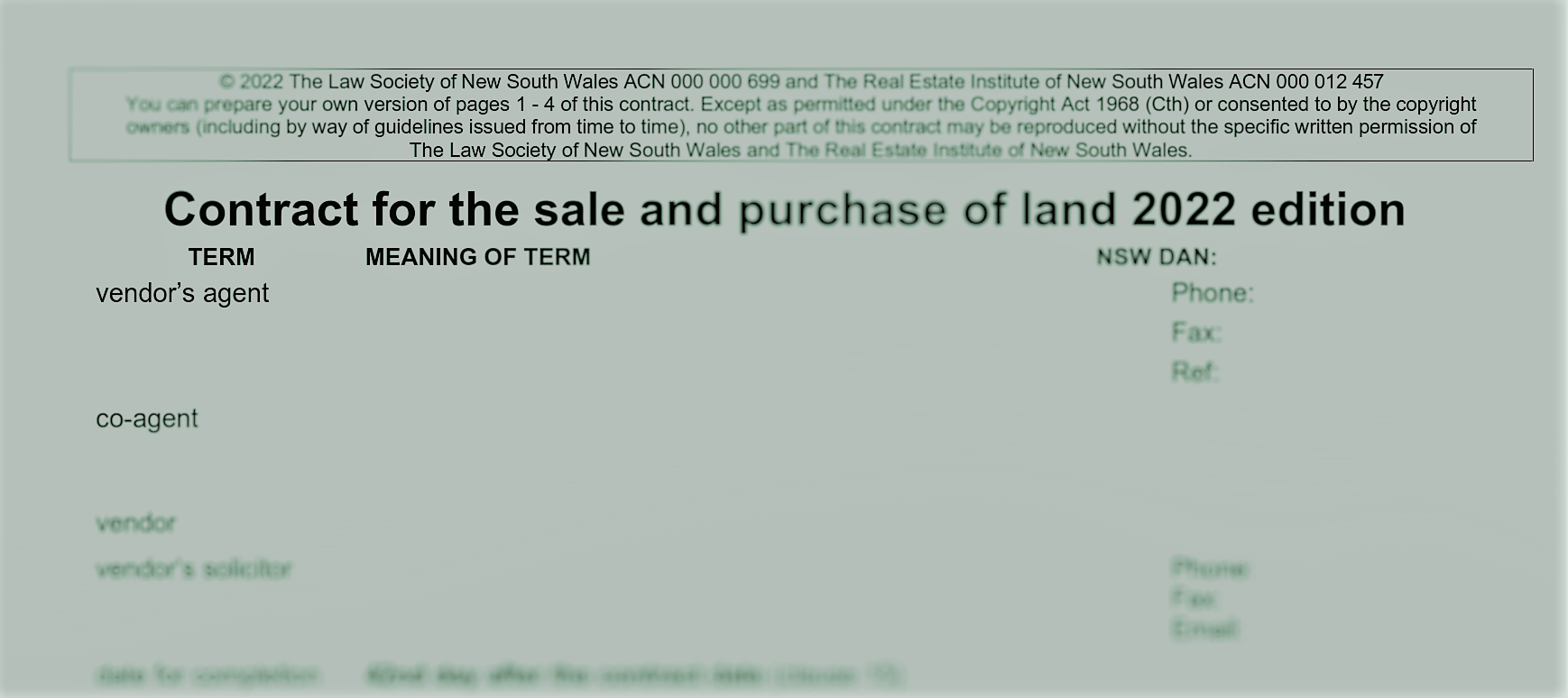
Uncovering the Property Title while reviewing Contract for Sale 🕵️♂️
When reviewing a Contract of sale of land, one of the most crucial aspects to consider is the property title. Accurately noting the title reference and identifying various registered interests that can affect the property is crucial for a smooth and legally sound transaction.
What to consider? 🤷
When you talk about contract review, there are specific details that one must carefully examine in the title 🤔. These details include 👇:
1. the accuracy of the title reference ✅;
2. the name of the property owner 🏠; and
3. all registered interests and dealings are noted on the title ®️.
It is essential to cross-check that this information is captured on the contract as per the title search to ensure accuracy and eliminate any clerical errors or discrepancies. ✍
In this article, we will discuss the significance of these elements so that you know what boxes to be ticked while reviewing a contract of sale. ✔
️1. Importance of title reference in the contract
Accurate notation of the title reference on the front page of the contract is vital to avoid unnecessary delays and complications. ⏱️
✍ ️While clerical errors in the title reference may seem minor, they can have a significant impact on the overall transaction process.
Just imagine if the title reference is noted incorrectly, it can result in the need for a corrected copy of the contract, leading to delays in loan approval and the completion of the transaction. 🚫
2. Verifying the name of the property owner
In property contracts, it is essential to specify the name of the seller, who may or may not be the registered proprietor. This distinction is crucial as it clarifies under what rights the seller is representing the registered proprietor.
There are common scenarios where the seller represents the registered proprietor, including when the registered proprietor has passed away and the seller is acting as an executor, administrator, or beneficiary of the estate. Additionally, the seller may represent the registered proprietor as their attorney. 🧾
Verifying the representation of the seller is especially necessary in cases where they are acting as an executor, administrator, or beneficiary. The settlement may be delayed if the property does not transfer to the seller’s name or if probate or letters of administration are not granted. ⏳
Therefore, once it is identified that the seller is representing the registered proprietor, it is essential to ensure that the contract includes a provision which specifies the timeframe within which the settlement should be completed. 📆
3. Registered interests on the title
Registered interests on a property title can have various implications for the property and its use. It is essential to understand the different types of registered interests to conduct a thorough contract review. Some of the common types of registered interests include: 🧐
♦ Covenants and Restrictions
♦ Easements
♦ Caveats
♦ Leases
♦ Mortgages
Let us understand these in detail. 💡
a. Covenants and restrictions
Covenants and restrictions are legal obligations or limitations that bind the property owner regarding the use or development of the land. 🚧
Difference between a covenant and a restriction
📜 A covenant refers to a legally binding agreement or promise made between parties, often included in a deed. It outlines specific obligations, rights, or limitations that the parties involved must adhere to. Covenants are typically long-term commitments that ‘run with the land’ meaning they are binding on future owners as well. They are commonly used to maintain standards, preserve the character of an area or protect community interests, e.g., creation of stormwater drainage and flood protection systems.
🛑 On the other hand, a restriction specifically refers to a limitation or condition imposed on the use or development of a property. They may include limitations on property use, architectural styles, building materials, building height, property size, or other specific requirements.
Understanding the differences between covenants and restrictions is crucial in property transactions and development to ensure compliance with legal obligations and maintain the integrity of the property and its surroundings. 👍

b. Easement
Easements are another important aspect to consider when reviewing a property contract. These can either affect or be granted to the property owner, i.e., one can either make use of it or grant other a right to use. An easement grants the right to use or access a portion of the land for a particular purpose such as:
💦 Right to drain water or sewerage;
🚶♂️ Right of way to pass through for access purposes;
🔌 Right to install or maintain utility infrastructure such as power lines, water pipes, or telecommunications cables; and
↔ Cross easements for common walls.
Also read: Common Types of Covenants, Restrictions and Easements Found on Property Titles
c. Caveat
A caveat is an important consideration when checking the title while reviewing a contract of sale of land. ⚠️
This indicates that the seller may have a financial debt/obligation to pay to the caveator, and legally, the seller will not be able to settle on the property until the caveat is removed from the title of the property. 💰
In the event that there are no disputes with the caveator, the seller should be in a position to settle on the completion date. However, in the event that the seller and the caveator have a dispute, e.g., the caveator and seller do not agree on how much money is owed to the caveator, then the caveator will not be removing the caveat from the property until the matter is resolved. ️
🚩 This is a risky proposition wherein the seller is not in a position to settle on the completion date in the event that the caveator does not remove the caveat from the title of the property.
d. Leases
Leases are another aspect that requires attention when reviewing a property contract. 📜
A lease indicates that the property is occupied by a tenant, and the tenant’s rights have been officially recorded on the property’s title. 👥
While leases are not typically seen in residential properties, they are common in commercial properties. 🏭
It is crucial to examine the lease carefully when encountered to ensure that the buyer is informed of the most important terms of the lease because ultimately the buyer will be the new owner.
Otherwise, if the property is sold with vacant possession, then the lease should be removed on or before settlement 👍.

👆 Is it really for Harvey Specter and Mike Ross 🤷♂️?
e. Mortgage
This is quite common and just simply means that the property has been used as collateral for a loan taken out by the property owner. 💰🔑 This may not provide any crucial details while reviewing a contract other than it being present there.
To sum up…
In a contract review, understanding the significance of the property title for checking the title reference and identifying the various registered interests are crucial for a comprehensive advice. 🔍
By being aware of these key elements of contract review, one can help their clients make informed decisions in their property transactions. 👨💼
Moving forward
If you have chosen to read this article, we are certain of one thing: you are open-minded about going that extra mile and are serious about your professional success. 🚀
🔎 ReVal Legal Support Services is proud to call itself an expert in preparing contract advices. 💡
We are working with many lawyers and Conveyancers in Australia for getting the contract reviews done. 🤝
📧 Please Contact Us if you would like to enjoy the benefits of improved efficiency and peace of mind. 💆️





